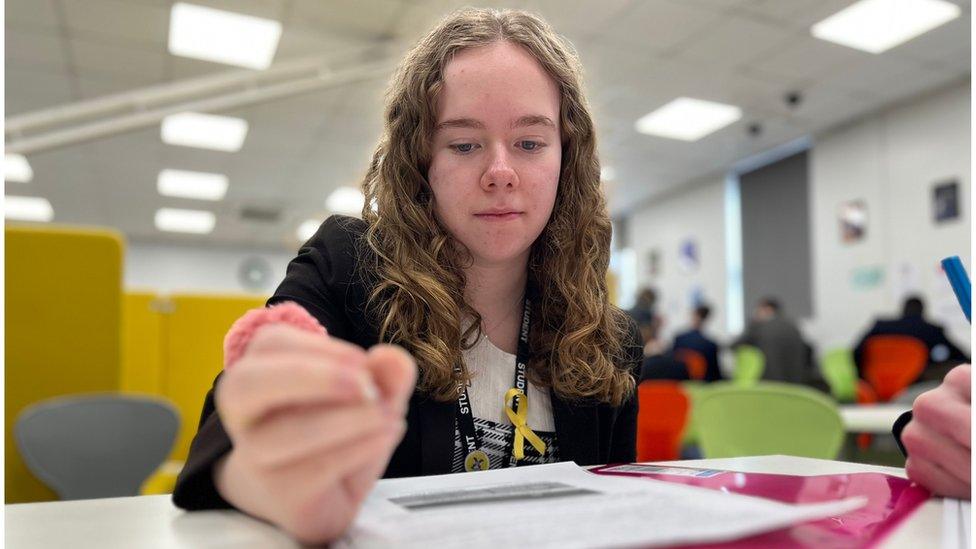Strike is about more than pay, say teachers
- Published
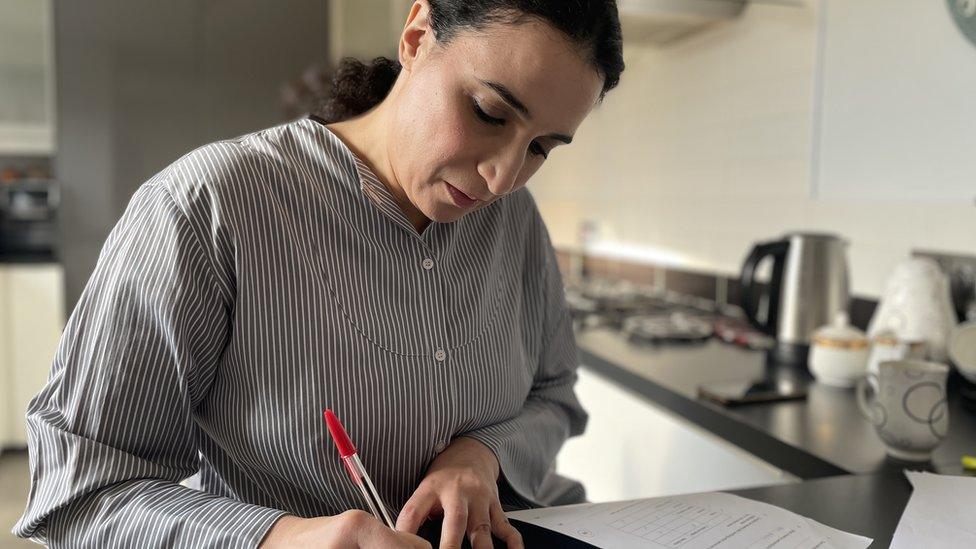
Teacher Houda Benhamouda says she worries about the children she teaches - particularly those from disadvantaged backgrounds
A one-day strike is getting under way across England and Wales as part of a dispute over pay.
It is the first of seven scheduled days of industrial action organised by the National Education Union (NEU) following a vote by members.
The union has said it expects about 23,000 schools to be affected by the walk-out.
Teachers taking part have been telling the BBC why they feel it is necessary.
'It's sad to see people being driven out of the profession'

Alisha Kakar says on average she works about 60 hours a week
Alisha Kakar, who is three years into her career as a chemistry teacher at a school in Leicestershire, said she would be striking because she feels education "simply cannot go on like this".
While NEU members are walking out over pay, for Alisha it is also about the workload and pressure she and her colleagues are under.
She said for some it had all become too much - and they were choosing to walk away.
"I would say in an average week I'm working up to 60 hours," she said. "I put in those hours because I want the best for my students."
She said she is spending at least six hours a day on her feet in the classroom, as well as doing marking and pre-lesson preparation.
She also said she has often found herself having to comfort fellow teachers when they feel stressed.
"They will be really upset by something that's happened or they'll just feel pent up with emotion and they will have a cry," she said.
"It is really sad to see how the job could impact my friends, my work colleagues and how upset and drained they feel about it."
"It is really sad and disappointing to see education being driven down like this.
"It is also really sad to see older colleagues, those with so much experience, so much knowledge that they could pass on, being driven out of the profession."

'Support staff decimated'
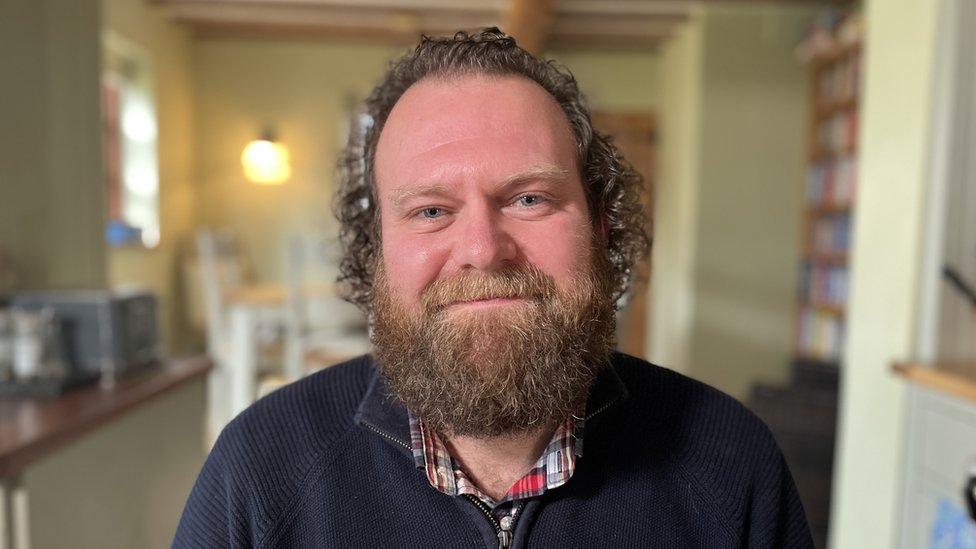
Ian Walters has been a teacher for nearly two decades
For Ian Walters, him taking part in strike action will be putting into practice the theory he has been teaching his politics students.
"My A-level students have been curious about my own position," said Ian who has been teaching in Derbyshire for 19 years.
"I've been incredibly guarded about saying whether I will or won't be taking action, but it's been a really good opportunity for some of those students to see in practice some of the theory we've talked about in the classroom."
His big concern is that people do not want to work in schools, not just teachers, but also support staff such as teaching assistants (TAs).
"Our support staff have been absolutely decimated," he said.
"They are our lowest paid members and they are taking up jobs in supermarkets and hospitality because they can earn more and have a better work-life balance."
In the past Ian said you could expect up to 50 applicants for a teaching role in a school but now you were were "lucky" to get one or two.
"Parents will be familiar with how frequently they receive emails and newsletters from the school that talk about staff that are leaving and moving on," he said.
"I'd hope that parents would be thinking about why there is such a high turnover in staff."
The result, according to Ian, is an ever-increasing workload.
"The last thing we want to do is inconvenience the children that we teach," he said.
"But the reality is if we don't take a stand now, then these cuts are just going to continue."

'We're facing a two-tier system'
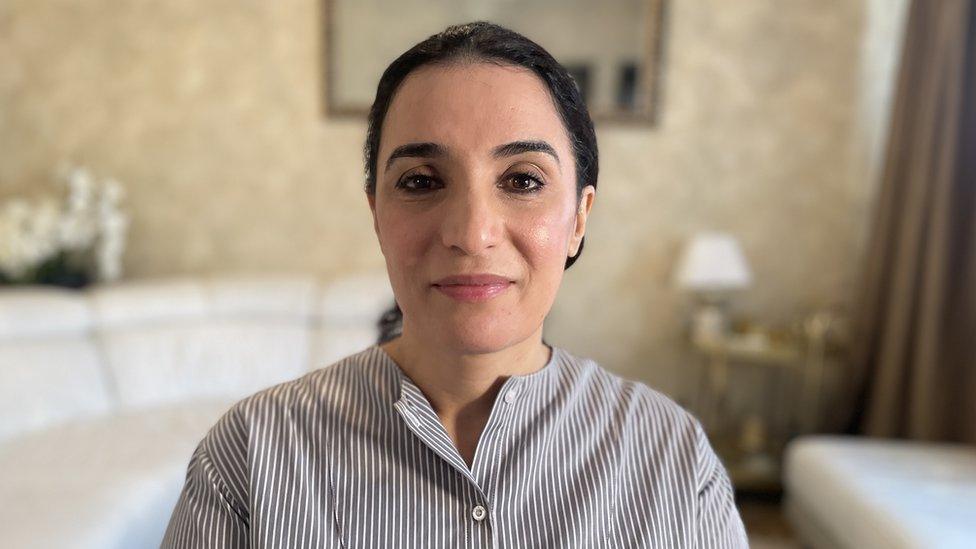
Houda Benhamouda is underwhelmed by the pay deal offered
Houda Benhamouda works at a secondary school in Nottinghamshire.
It is no surprise as someone who has taught maths and business that her thoughts are focused around funding.
She feels the current pay deal does not deliver for teachers - or pupils either.
"That pay increase is not funded, it is coming out of school budgets," said Houda.
"That is coming out of the resources your children would need to use.
"What we are asking for now is funding. It is not just about the pay increase; it is about funding into schools."
Houda, who has spent 18 years as a teacher and has previously gone on strike over pensions, said she understood the disruption it would cause.
But her growing concern is that the loss of so many experienced teachers is in danger of creating a two-tier system of education.
"I know some parents, they go down the route of private tuition," she said.
"Disadvantaged kids do not have that option. They only have us.
"If we are not there because the government decides to keep those cuts going and we keep losing qualified and experienced teachers, what's going to happen to those children?"

What has the government said?
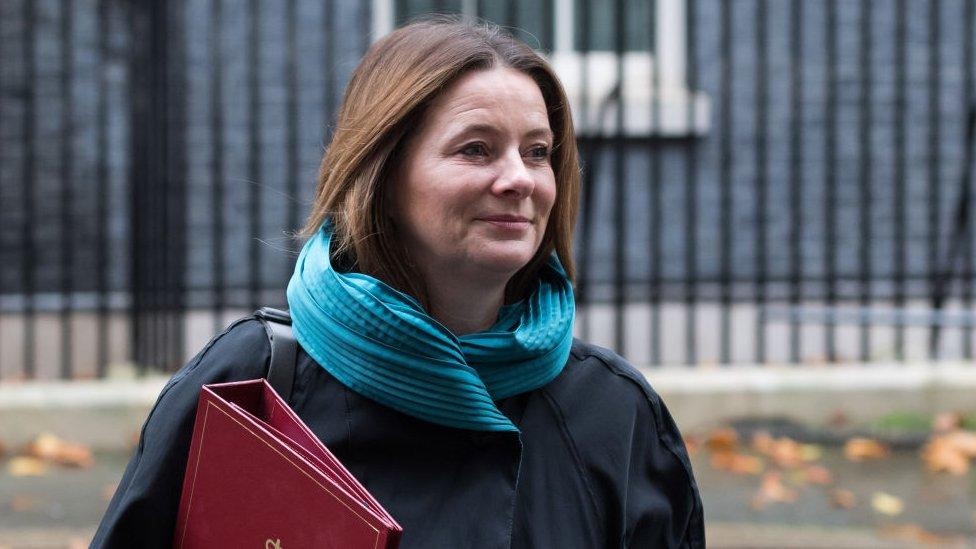
Gillian Keegan says talks with the union are ongoing
Education Secretary Gillian Keegan said: "It is hugely disappointing the NEU is continuing with strike action. These strikes will have a significant impact on children's education, especially following the disruption of the past two years, and are creating huge uncertainly for parents.
"With talks ongoing on a range of issues, including around future pay, workload, behaviour and recruitment and retention, it is clear that strikes are not being used as a last resort.
"I have been clear today that unions do not need to strike to meet with me. I also reiterated my call to union leaders to ask their members to let head teachers know if they intend to strike, helping schools to minimise the impact on children.
"I will continue doing everything possible to protect children's education."

Follow BBC East Midlands on Facebook, external, Twitter, external, or Instagram, external. Send your story ideas to eastmidsnews@bbc.co.uk, external.
Related topics
- Published31 January 2023
